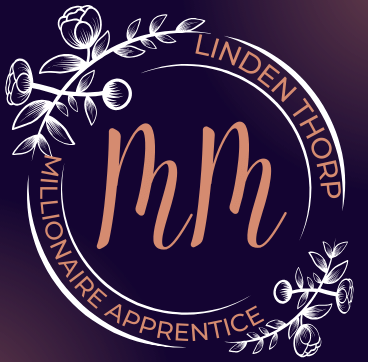
Today’s economic landscape is fast-moving, where staying relevant requires more than just showing up to the office daily.
The truth is, the skills that got you a job a few years ago might not be enough to keep it today.
Continuous learning, then, becomes a vital tool in climbing the professional ladder and securing financial success.
Let’s start with how the digital age reshaped the workforce.
With tech evolving at a breakneck pace, roles across industries have transformed or, in some cases, evaporated.
Those who adapt and expand their skill set stand a much better chance of thriving amidst these changes.
Innovators and leaders in various fields often attribute their success to a commitment to learning and self-improvement.
Now, the numbers don’t lie.
Studies show a direct link between education and earning potential. Individuals who actively develop their skills and knowledge tend to enjoy higher salaries and more job opportunities.
This doesn’t just apply to formal education either—online courses and workshops count, too, shaping an increasingly skilled workforce ready for future challenges.
To see where you stand, consider evaluating your skills regularly.
Identify areas of growth and seek out learning opportunities to fill those gaps.
It’s not only about becoming more competent at work; consistently learning can also open lucrative doors you hadn’t even considered.
Bridging the Knowledge Gap: How Learning Increases Wealth
Education’s role in wealth creation can’t be overstated.
It’s a critical tool for narrowing income gaps and providing everyone, regardless of background, a better shot at financial security.
Many of the world’s wealthiest individuals are ardent advocates of continuous education, having built their fortunes on a strong foundation of knowledge and learning experiences.
Consider the stories of self-made entrepreneurs and professionals who’ve climbed the economic ladder thanks partly to their commitment to learning.
From tech moguls who never finished college but pursued lifelong learning, to professionals who pivoted careers successfully by acquiring new skills—education has been their secret weapon for wealth accumulation.
Investing in education feels much like any other valuable asset.
The return on this investment is often seen in higher salaries, better job security, and the ability to innovate in one’s field.
It’s about viewing education as a long-term asset rather than a short-term cost.
Every skill learned and every credential earned enhances not just your knowledge, but your market worth.
When you decide to invest in your development, seek out avenues that will truly enhance your skills.
Look for courses, workshops, or self-study opportunities that align with your personal and career goals.
Understanding the dynamics between skills and market demand can guide you towards avenues that bolster your financial growth.
It is crucial to be strategic about your learning journey. Identify where your industry is headed and tailor your learning accordingly.

Technological Advancements: Catalysts for Lifelong Learning
Tech is superb when it comes to making learning accessible and affordable.
Gone are the days when education was confined to traditional classrooms.
The Internet offers various options, such as online courses, webinars, and digital libraries, breaking down barriers to knowledge like never before.
Learning platforms have revolutionized how we acquire skills, providing flexibility and personalization that fits our chaotic schedules.
These platforms allow you to learn at your own pace, whether during a lunch break or late at night.
The beauty of these technological tools lies in their ability to cater to different learning styles.
Whether you’re a visual learner who thrives on video content or prefers text-based materials, there’s something for everyone.
But it’s essential to choose the right resources.
Not every online course or webinar offers value for your time and money.
Always check for reviews and credentials, ensuring the provider is reputable.
Evaluate what the course promises to deliver and see if that aligns with your learning goals.
The democratization of education through digital tools has levelled the playing field.
Now, not only the elite have access to world-class education—anyone with an internet connection can boost their knowledge and skills.
It’s about taking advantage of these opportunities to better ourselves and, ultimately, improve our earning potential.
Strategies for Incorporating Continuous Learning Into Daily Life
Finding time for learning amid a busy schedule seems challenging, but with the right strategy, it becomes manageable.
One practical approach is prioritizing your tasks.
Start by identifying the most crucial learning opportunities relevant to your career goals. This will help you allocate time effectively and ensure learning isn’t sidelined.
Balancing professional commitments with personal development requires intelligent scheduling.
Use your commuting time for audiobooks or podcasts.
Squeeze in study sessions during breaks or use multimedia resources that fit your daily routine.
The key is to integrate learning into existing activities.
Start small by dedicating a few minutes each day to learning something new.
It could be as simple as reading articles, watching a tutorial, or participating in discussions on platforms like LinkedIn.
Over time, these small efforts accumulate, resulting in substantial knowledge gains.
Finding credible learning resources is crucial for maximizing time and effort.
Turn to platforms offering verified courses and positive reviews from industry professionals.
Engaging in communities or professional networks can also provide valuable insights and recommendations on where to focus your efforts.
Networking in professional learning environments boosts your knowledge and connects you with mentors and peers who can guide your career path.
Such interactions often lead to fresh ideas and innovations that can be applied in your field, enhancing personal and professional growth.
Long-term Financial Benefits of Committing to Continuous Learning
One of the most significant payoffs of continuous learning is its impact on your financial future.
Knowledge, much like money, compounds over time.
The more you learn, the more you can potentially earn.
Diversified skills can lead to varied income streams.
By broadening your expertise, you open up new career paths and opportunities.
This could mean transitioning into a higher-paying role or even venturing into entrepreneurship with the confidence of expert knowledge.
Adaptive learning strategies help in future-proofing your career.
The job market constantly evolves; those who learn and adapt quickly are better positioned to handle changes.
You remain valuable and competitive by staying informed about industry trends and acquiring relevant skills.
Committing to personal development has long-reaching benefits that go beyond immediate financial gains.
It equips you with a growth, improvement, and resilience mindset.
This mindset can help you navigate financial challenges and identify opportunities others might overlook.
Incorporating continuous learning into your lifestyle is an investment in your personal growth and a strategic move towards creating and securing wealth.
You set yourself up for long-term success in an ever-changing economic landscape by consistently enhancing your skills and knowledge.

Take a break to Increase your Productivity and Well-being
- Immediate Stress Relief in 40 minutes a day
- Mindful Millionaire
- 5 Mindful Practices for Novice Millionaires: Stage 2
- Mastering Your Mindset: The Power of Thoughts and Feelings
- Millionaire Roadmap Daily Challenge: 6 Steps to Developing the Millionaire Mindset
- Transformation for Novice Millionaires: Unlocking the Psychology of Business Success in 7 stages

Thanks for a great article which really hits the mark regarding growth and learning. It is true that in the fast changing world that we live in adaptability is imperative if you don’t want to be left behind. The rate at which technology is growing and changing is crazy. A perfect example is the need for businesses to change their marketing strategies with the introduction of social media. We now have marketing experts who specialise is social media marketing. The ability to learn new skills is a must if you want to stay relevant in the job market and the business world. The introduction of AI is what I believe the next big game changer. What I love about your article is the learning mindset.
Thanks so much Lyn! Yes, the learning mindset! Traditional education has done a great deal of damage to many cultures! Learning is the spice of life! And yes, AI! WOW!
You may also enjoy: Money as Energy: A Blueprint for Attracting Wealth and Developing a Millionaire Work Ethic.
Here’s to your Success and Lifelong Learning!! 🌺
Linden
Hello,
This post really highlights how essential continuous learning is in today’s fast-paced world, especially when it comes to building wealth and staying relevant. I appreciate the connection between adapting to technological advancements and how they impact earning potential. It is so true that education does not have to be formal anymore, online courses and workshops are such a great alternative for skill-building.
On the upside, as you pointed out, expanding your skill set opens up doors to higher salaries, job security and even entrepreneurship. It is like an investment that keeps paying off! Plus, with all the digital tools available now, learning is more accessible and flexible than ever before. You can fit it into your schedule easily, whether you are commuting or on a break.
On the flip side, though, there us the challenge of choosing the right learning paths. Not every course is worth the time or money and it can be hard to sift through all the options. Plus, balancing learning with work and life commitments takes discipline and good time management. But I guess that is part of the continuous learning journey too, right?
Great read and definitely inspiring to think about how learning can impact our financial futures!
Thanks so much Starlight! I have always loved your comments and feel as if I know you well. Karma!
Great summary and comments.
Your question: Yes, balance is my middle name! And choosing is something I help people with. Career Choice is a moving target these days and with digital illiteracy and so on, many young people need help. Yes, balancing skill acquisition and growth with living and breathing is a massive multi-tasking miracle if you get it right!
Blessings and SUccess with your lifetime learning 🌺
Linden